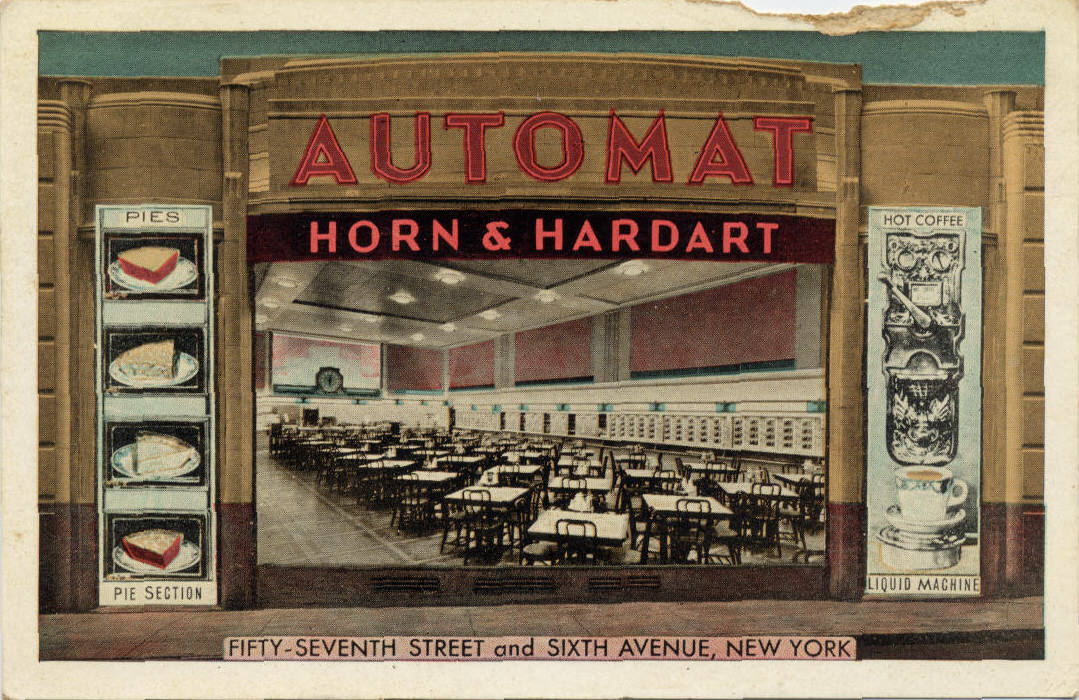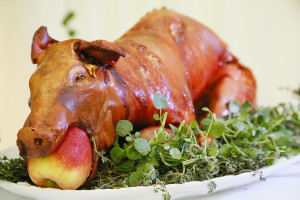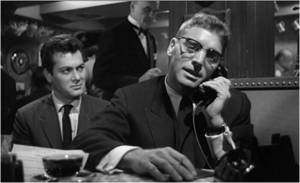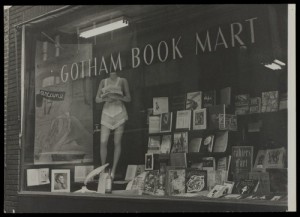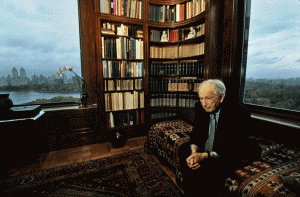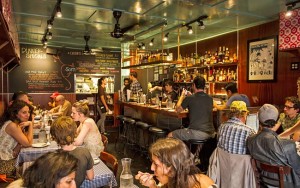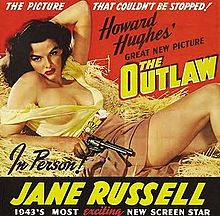As you all know, there are plenty of Jewish jokes; however, there are only a few Jewish jokes about food. Maybe food is so important to Jews (including HG) that it can’t be a laughing matter. Plenty of Jewish waiter jokes: “Customer: There’s a fly in my soup. Waiter: So, how much can it drink?” “Customer: Is the brisket good? Waiter: Too good for you.” “Customer: Taste the soup. Waiter: What’s wrong? It’s no good? Customer: Taste the soup. Waiter: Everybody loves this soup. Customer: Taste the soup. Waiter: Okay, give me your spoon. Customer: AH HAH!!!” There’s the Catskills hotel classic. A woman complains:”The food here is terrible. And, such small portions.”(Woody Allen used the joke as a parable for human life). Jews are irreverent about authority figures, even religious authorities (Okay, this isn’t true about the Chassids). There are lots of Rabbi jokes but few about food. Only two that HG knows: Aged Rabbi decides he should taste pork before he dies. Goes to a distant restaurant where he isn’t known. Looks at menu. Orders suckling pig. It is presented to him on a platter with an apple in the piglet’s mouth. At that moment the president of his synagogue enters. “This is terrible. What are you doing, Rabbi? The Rabbi responds: “I ordered a baked apple and look what they brought me!!!” The other concerns a confessional chat between a Rabbi and Priest on a plane. The punchline: “Beats the hell out of bacon, doesn’t it, Father?” You can fill in the rest.
No Laughing Matter
April 21st, 2016 § 0 comments § permalink
Perfect Summer Sunday
June 30th, 2014 § 0 comments § permalink
So, how did you spend this summer Sunday? This is what HG did. On Prince Edward Island the sun was out full blast. Cloudless sky. Sea was lake-like calm. Perfect kayak weather. HG and BSK paddled happily. The water was very clear and HG saw many lobster and fish plus a giant jellyfish with tendrils three feet long. Surprised some herons sitting on a rocky point. Whoosh!! Up in the air they went and there is nothing more beautiful and streamlined than these long necked birds in flight. Paused for lunch. Spicy Korean instant ramen enriched with some slices of cheddar (a staple dish offered youngsters by Korean moms in Los Angeles). Back to the beach for some reading, strolling, beach glass hunting. Into the sea for a “refreshing” plunge. The sea won’t warm up until later in July. After an outdoor shower, HG shucked a dozen cold South Lake oysters. Chilled vodka aperitif for HG and white wine for BSK. Then a dinner of steamed asparagus with a butter/lemon sauce followed by a salad of sautéed sea scallops and lovely farmers market greens. A perfect Canadian pecan studded butter tart for dessert. HG/BSK have a library of almost 100 classic VCR films. HG has been indulging nostalgia for HG’s New York/Broadway press agent days. Watched Woody Allen’s “Broadway Danny Rose” a few nights ago and on Sunday delighted in “Sweet Smell of Success.” James Wong Howe black and white photography. Bravura performances by Tony Curtis and Burt Lancaster. Climaxed a perfect day.
Flaming Rents Burn New York Book Stores
April 5th, 2014 § 2 comments § permalink
When HG was young, New York was a city of bookstores. There was the grand Scribner’s on Fifth Avenue and Brentano’s, also a Fifth Avenue book landmark. The 8th Street Bookstore in the Village was where HG’s late, lamented friend Peter Alan Meyerson, the Hollywood comedy writer, worked after college. The Village was filled with bookstores catering to a variety of tastes: political, erotic, artistic, perverse. Fourth Avenue (later renamed Park Avenue South by the same pretentious vulgarians who dubbed Sixth Avenue as Avenue of the Americas) was lined with used bookstores. HG, sometimes joined by a young SJ, browsed their shelves on many happy days and bought the books that were the foundation of the HG/BSK library. HG’s favorite bookstore was the Gotham Book Mart at 41W. 47th Street. Frances “Fanny” Steloff opened it in 1920. Imperious and irascible, Fanny loved books and writers. It was a hangout for almost every literary luminary of the 20th Century. Delmore Schwartz, Gore Vidal, Tennessee Williams, W.H. Auden, Woody Allen, Stephen Spender and scores of other novelists, poets, critics and playwrights made it their hangout. There were poetry readings and novelists would often preview their works in progress. Fanny held parties for visiting literary figures from overseas (such as Osbert and Edith Sitwell). Fanny sold the shop in 1967 but continued to live in an apartment on the 3rd floor of the shop. She died in 1989 ate the age of 101. The shop (in a new space on W. 46th) closed in 2007, one of the last glorious independent, individualistic, eccentric New York bookstores. HG’s other favorite haunt was a small shop on 23rd Street that specialized in publishers’ overstock and cut rate art and design books. The owner, an erudite left wing gentleman, played Mozart and Bach on the shop’s sound system and gave HG steeps discounts on HG’s purchases of Skira and Abrams art books. HG recalled all of this as he read in the New York Times that New York bookstores are disappearing. Yes, Hitler burnt books and New York’s rapacious landlords are emulating him by eviscerating bookstores (and other irreplaceable neighborhood treasures) with outrageous rent demands. A young woman, the Times reported, who wanted to open a small bookstore on the Upper West Side, could find no space for less than $40,000 a month. New York has already lost more than a third of its bookstores. Surely there must be some sort of municipal government action (subsidy, etc.) to prevent the loss becoming even more dire. How can a city that calls itself the cultural and creative center of the world do nothing as its bookstores are driven out of business?
Obituaries
January 30th, 2014 § 0 comments § permalink
Every morning, while sipping cafe au lait, HG reads the daily obituaries in the New York Times. It is a habit that smacks of schadenfreude (defined as pleasure in the misfortunes of others). Yes, muses HG while reading of the demise of a distinguished individual: “With all of your honors and renown you are very dead. HG is very much alive.” There is also a sobering thought. As an octogenarian, HG may soon (hey, not too soon) be an obit subject. The star of a recent Times obit page was Martin S. Bergmann, 100, psychoanalyst. Bergmann played the philosopher in Woody Allen’s Crimes and Misdemeanors. The photo illustrating the obit fascinated HG. There was Bergmann, looking glum, seated on a Persian rug clad psychoanalytic couch (obviously a copy of Freud’s lounge). Bergmann’s office, richly wood paneled and containing a big bookcase of reference volumes, had huge windows with spectacular view of Central Park, the Reservoir and the West Side (the twin towers of The Beresford on Central Park West clearly visible). Office had to be on a high floor of a Fifth Avenue building. Very super-prime, super- expensive real estate. So. In order to cover the nut, what was Bergmann charging his analysands? The obit raised another question. Bergmann was raised on an Israeli kibbutz. The kibbutz paid for Bergmann to come to American and study agriculture. Bergmann abandoned agriculture and never returned to Israel. Did he ever pay back the kibbutz? Yes, death raises many questions. HG’s response to death is Italian (HG paraphrases): “Life is short. Brutish. And, it ends in pain. So, in the meanwhile, let’s enjoy a good meal.” With ample wine, adds HG.
What we Have Lost…
October 29th, 2013 § 4 comments § permalink
What have we lost? Style. A sense of occasion. HG refers to the fact that few persons dress formally for a restaurant dinner these days. HG is not talking about black tie. We don’t live in Downton Abbey. But, appropriate dining-out clothes for HG does mean a jacket for men. Women, given their natural virtues and virtuoso abilities in scarf administration, can get away with much more informality. When HG was younger, everyone dressed up to go to a restaurant or the theater. Women even had “cocktail dresses” and “restaurant suits” (They also had girdles but that’s another story). Looking stylish added a festive quality to many activities. With baby boomers in the 60s rejecting the formalities of their elders, the road was paved for today’s young hipster style of plaid shirts, jeans and beards. Overall the wholesale embracing of casual style seems to HG, depressing and conformist. HG agrees with Woody Allen’s statement: “Eating at home is just eating. Eating in a restaurant is a party”. So. Listen to HG: Make the world a better place and dress to dine out.
New Mexico Sunday
October 14th, 2013 § 0 comments § permalink
HG/BSK’s home is set in a historic farming neighborhood bordering a Native American reservation. No garbage pickup. This means a trip to the dump every Sunday. Fortunately, the dump is nearby and is set in a beautiful area of high desert and rolling hills. Makes dumping garbage an aesthetic (almost) treat. HG times the chore as to enjoy a post-dump lunch at El Parasol, the plain spoken, friendly, soulful restaurant dispensing New Mexican treats at its highway location in Pojoaque. Sunday lunch at El Parasol is a treat. The room is jammed with happy Hispanic families, at least three generations at a table. Love for children and respect for elders reverberates. Lots of laughter as kids dig into big bowls of French fries drenched in green chile sauce and melted cheese. The older folk are knocking off immense burritos, enchiladas, tacos, quesadillas plus brimming bowls of menudo, posole and arroz con pollo. Diets? Health food? Cholesterol? As they say in HG’s native Noo Yawk: Fuhgeddaboutit!! There’s no alcohol at El Parasol. The strongest drink is iced tea. So the joy and merriment is solely fueled by family and food. HG worked off lunch with a long swim in HG/BSK’s sun drenched indoor lap pool. Then, off to Santa Fe to see Woody Allen’s “Blue Jasmine,” a very dark movie for a very dark time in the USA. Liked the movie but was annoyed at Allen’s portrayal of ordinary working people. As is inevitable in Allen movies,they come across as crude Neanderthals. A far cry from the working people, New Mexican and otherwise, that HG knows and admires.
Wit
July 25th, 2013 § 4 comments § permalink
HG doesn’t spend his days only writing and thinking about food and drink. Today, HG thought about wit. No, not funny. There are lots of funny people around. Woody Allen, David Sedaris, Steve Martin, Jack Handey, Paul Rudnick, Marshall Brickman and Ian Frazier (yes, the author of On The Rez and Travels in Siberia can be hilarious) and others make HG laugh.(Alas. Dave Barry discontinued his column, a weekly shower of laughs). Wit, however, is scarce. What HG has in mind when he thinks of wit are the off-the-cuff, un-rehearsed one liners, retorts, apt insults, swift characterizations and satirical comments that have bite and savor. The French call these (and HG paraphrases) “staircase remarks,” meaning that they are the remarks you would have used to demolish the dinner party boor; unfortunately, you only thought about these cutting words after you have left the party and are walking down the staircase. Wit takes many forms, not all destructive (although malice does contribute a certain spark). Here are examples of wit that HG treasures. You may have heard many of them but bear with HG and allow the Hungry Guy to bore you: Lady Astor to Winston Churchill: “If you were my husband I’d put poison in your coffee.” The retort: “If I was your husband, I’d drink it.” The legendary British politician Benjamin Disraeli’s description of an unfortunate dinner party: “Everything was cold but the champagne.” Disraeli’s culinary advice (true then and now): “Vote with the liberals. Dine with the Tories.” Truman Capote to a rowdy who displayed his male member and said: “Autograph this.” Capote looked at the unprepossessing organ and said: “Well, I could initial it.”
Show business folk have been responsible for many memorable lines. The great playwrights George S. Kaufman and Moss Hart were summoned to the hotel room of the volatile, brilliant director, Jed Harris. Harris received them in the nude. There was a heated discussion of the play they were working on. Nobody mentioned Harris’ lack of clothing. But, upon leaving, Kaufman murmured: “Jed, your fly is open.” Screenwriter Harry Kurnitz was a renowned Hollywood wit. When Ernst Lubitsch was fired from his job as a studio head but didn’t leave his office immediately, Kurnitz remarked: “Forgotten. But, not gone.” And, it was Kurnitz who characterized the marketing campaign for the film The Outlaw, a campaign that emphasized the actress Jane Russell’s robust cleavage: “The Sale of Two Titties.”
Jewishness and its many manifestations have elicited some memorable lines. Walter Matthau (who began his career on the Yiddish stage) wrecked his sailboat and was forced to make an emergency docking at a very exclusive, WASPY (and presumably anti-semitic) yachting club. The club commodore asked Matthau: “And, who are your people, Mr. Matthau?.” Matthau’s answer was succinct: “Goyim.” Groucho Marx once inquired of the director of a restricted country club: “I’m only half Jewish. Can I play nine holes?” And, it was Marx who said of the Presidential hopeful Barry Goldwater (who was of Jewish ancestry): “I always knew the first Jewish President would be an Episcopalian.” HG will leave the last word (a bitter and sardonic piece of wit) to Otto Kahn, the very elegant and cultivated Jewish financier and art patron. When asked for a definition of a “kike,” Kahn retorted: “A Jewish gentleman who has just left the room.”
Woody Allen’s New York
April 11th, 2013 § 0 comments § permalink
In the early 1950’s, a scrawny kid named Alan Konigsberg was writing gags for New York press agent David Alber. Alber, of course, would submit these little bon mots of humour to the reigning Broadway columnists in exchange for mentions of his clients. At the same time, HG (in his morally conflicted role as journalist and moonlighting press agent) was writing gags and newsy tidbits for the columnists (Walter Winchell, king of the columns, liked HG’s stuff). As HG has often remarked: “I went on to fame and fortune. Wonder what happened to the Konigsberg kid?” Well, Konigsberg changed his name to Woody Allen and has been busy lighting up the world with his comic genius for more than 50 years. These were some HG memories last night as HG and BSK watched Whatever Works, the Allen comedy starring Larry David. Allen originally wrote the movie with Zero Mostel in mind but Mostel died before it could be made. It would have been better with Mostel. Larry David, a gifted comedy writer and a funny man in his improvised riffs on the television program Curb Your Enthusiasm, is not a film actor and can’t really carry a movie. Zero, a mad comic monster, would have been a smash. Still, HG enjoyed the movie because, once more, Woody Allen displayed his intense love for New York. Lots of Greenwich Village street scenes and Chinatown food shopping (lovingly photographed). There’s even a vignette featuring the Yonah Shimmel knish shop on Houston Street. In Allen’s New York everyone seems to live in great apartments or lofts. There’s lots of dining in pleasant restaurants. Best of all, beautiful shiksas (non-Jewish girls) find neurotic, verbal, physically unprepossessing Jewish guys sexually irresistible. As the saying goes: “From Allen’s mouth to God’s ear.” But, maybe Woody has a point. After all. HG met and won the heart of BSK in New York.
The Best Food Book In Creation
May 30th, 2012 § 0 comments § permalink
Secret Ingredients: The New Yorker Book of Food and Drink, is an anthology from the pages of New Yorker Magazine and edited by David Remnick. In HG’s opinion, it is the best food book ever created. There are articles that will make you hungry (A.J. Liebling on the Paris restaurants of his youth; Joseph Mitchell on the old New York steak dinner or “beefsteak”; Joseph Wechsberg on French chef Fernand Point). Some will make you think (Adam Gopnik on French cuisine). Some will make you laugh (Calvin Trillin, Ogden Nash, Steve Martin, Dorothy Parker, Woody Allen and S.J. Perelman). Some may make you weep (Alice McDermott’s bittersweet fiction, “Enough,” on the varieties of appetite and desire). And, there’s one that may make you queasy. HG refers to “A Rat In My Soup” by Peter Hessler. The intrepid author visits Luogang, China, where two restaurants, The Highest Ranking Wild Flavor Restaurant and the New Eight Sceneries Wild Flavor Food City specialize in rat (yes, some tasty cat and snake dishes are also available). Hessler dines on Simmered Mountain Rat With Black Beans and Spicy and Salty Mountain Rat. He discovers, no surprise, that rat really isn’t very tasty. Anyway, “Secret Ingredients” is savory fare, indeed
The Automat: Good Food For The Masses. It Can Be Done.
March 13th, 2011 § 0 comments § permalink
During its heyday (1930’s-1970’s), the Horn and Hardart Automat chain of restaurants fed some 350,000 to 500,000 New Yorkers and Philadelphians daily. Fed them in sparkling surroundings at a very low price. The customer put nickels in a slot and out popped the world’s best macaroni and cheese casseroles, baked bean casseroles, chicken pot pies, beef pot pies. There were exemplary salads, pies, cakes, sandwiches (the BLT was a winner). The diner could also take his tray to the cafeteria section for beef stew, Salisbury steak, roast chicken and an array of vegetables (Harvard beets and mashed potaoes were HG favorites). Say the word “Automat” to a New Yorker of a certain age and get a big smile. Automats were fun. Gregory Peck, Tony Curtis, Woody Allen, Leonard Nimoy, Jerome Robbins, Neil Simon and Dick Clark all loved the Automat. So did HG. Armed with a handful of nickels little HG felt like a true adult as he assembled his meal of macaroni and cheese, coconut custard pie and hot chocolate. The last Automat (southeast corner of 42nd and Third) closed in April 1991, just about 20 years ago. For those who want to reignite memories, the Smithsonian in Washington has a 35 foot section of the Automat on display. But, unfortunately, no piping hot macaroni and cheese.